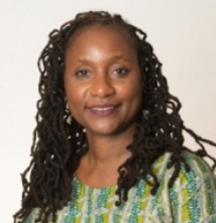In the North those who spoke and wrote publicly proudly embraced the label of “African” whether describing themselves or their institutions. Thus, in the eighteenth century Venture Smith’s “A Narrative of the Life and Adventures of Venture, a Native of Africa: But Resident above Sixty Years in the United States of America” used the term “Africa” to indicate his heritage. (7)
Throughout the antebellum period, black Americans, fearing discrimination, found Africa looming in their imaginations. They constructed it as a homeland where the racial oppression they faced did not exist. Even those with fading memories and ties to the continent often embraced that heritage. As they sought inclusion and assimilation in the United States, many found that their African ancestry precluded incorporation into the larger society and looked for other ways to signify their place in the United States.
In the wake of efforts by the American Colonization Society (ACS) to encourage free blacks to emigrate to Liberia in 1820, the term “African” was abandoned by many in favor of “colored.” As one scholar has noted, “Displays of African culture fell into disrepute.” (8) So it was that in 1835 William Whipper, a black Philadelphian, recommended that “colored” and “African” be abandoned, and that Americans of African ancestry try to assimilate more fully into American society. (9)
Though he received some support for abandoning the use of racial designations, the use of “colored” persisted. Other terms, such as “Anglo African”and “black,” were used occasionally, even into the middle of the nineteenth century. In 1859 the “Weekly Anglo-African” newspaper and an accompanying magazine were published by Robert and Thomas Hamilton to be a “press of our own.” (10)
In the nineteenth century those who championed repatriation to Africa continued to highlight their African background. Even those who rejected the idea of a “return” identified with or embraced the term “African.” By the nineteenth century black Americans, now several generations removed from Africa, gradually dropped that label from their institutions.
Why Africans Became Coloreds, Anglo-Africans, Afro-Americans, Then Negroes
Features


Late in the nineteenth century some embraced the “Afro American” label, as seen in the titles of organizations such as the National Afro American League and the Baltimore Afro American. An early twentieth-century campaign resulted in the word “negro” being capitalized by the 1930s. “Negro” continued to be used into the twentieth century.
Du Bois assured the young man that a name change would not alter the condition of blacks in America: “If men despise Negroes,” he wrote, “they will not despise them less if Negroes are called ‘colored’ or ‘Afro Americans.’”
W. E. B. Du Bois, whose life spanned almost a century and who, throughout his life, encountered different labels describing black Americans, responded to a letter from a young high school student in 1928. Roland A. Barton objected to the use of “Negro,” believing it “a white man’s word to make us feel inferior.” He wondered why even “natives of Africa” were called Negroes. Du Bois assured the young man that a name change would not alter the condition of blacks in America: “If men despise Negroes,” he wrote, “they will not despise them less if Negroes are called ‘colored’ or ‘Afro Americans.’” (11)
African Americans and Africa: A New History with Dr. Nemata Blyden
Alexandria Black History Museum
902 Wythe Street
Alexandria, VA
Sat, October 12, 2019, 11:00 AM – 1:00 PM
Tickets are $5.
Du Bois assured the young man that a name change would not alter the condition of blacks in America: “If men despise Negroes,” he wrote, “they will not despise them less if Negroes are called ‘colored’ or ‘Afro Americans.’”
W. E. B. Du Bois, whose life spanned almost a century and who, throughout his life, encountered different labels describing black Americans, responded to a letter from a young high school student in 1928. Roland A. Barton objected to the use of “Negro,” believing it “a white man’s word to make us feel inferior.” He wondered why even “natives of Africa” were called Negroes. Du Bois assured the young man that a name change would not alter the condition of blacks in America: “If men despise Negroes,” he wrote, “they will not despise them less if Negroes are called ‘colored’ or ‘Afro Americans.’” (11)
African Americans and Africa: A New History with Dr. Nemata Blyden
Alexandria Black History Museum
902 Wythe Street
Alexandria, VA
Sat, October 12, 2019, 11:00 AM – 1:00 PM
Tickets are $5.
Advertisers | Contact Us | Events | Links | Media Kit | Our Company | Payments Pier
Press Room | Print Cover Stories Archives | Electronic Issues and Talk Radio Archives | Writer's Guidelines






